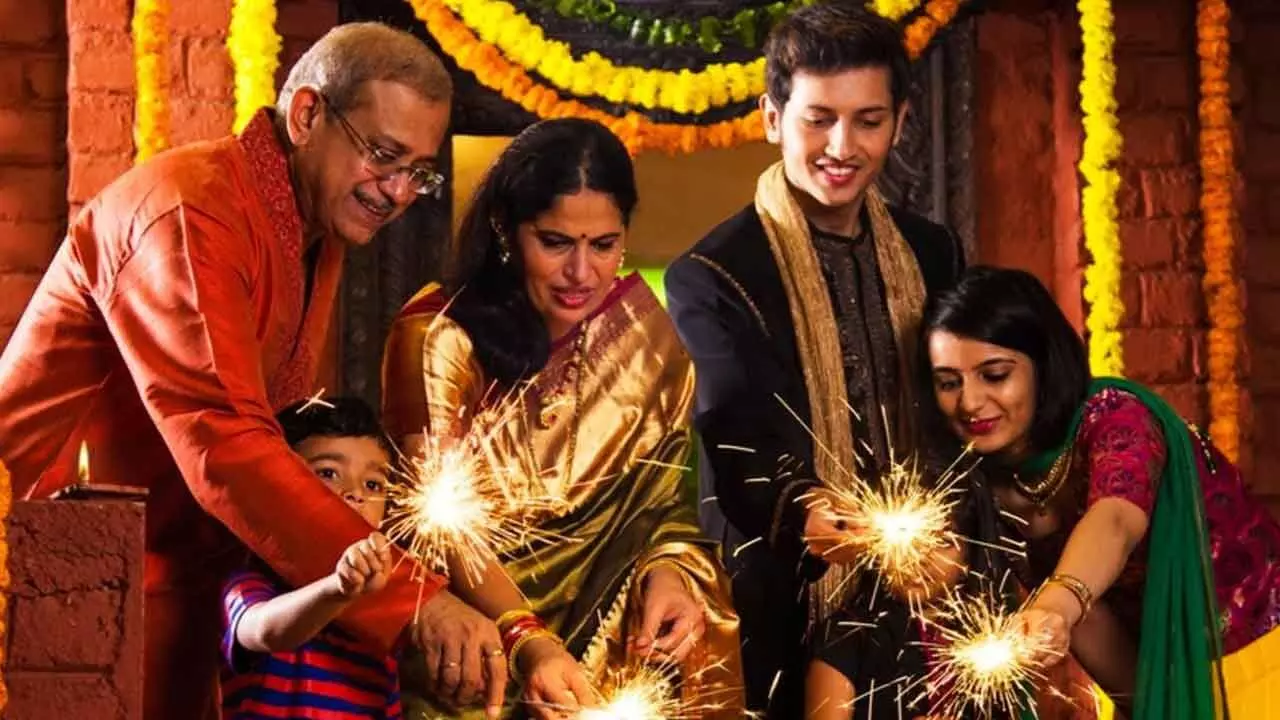Diwali celebrations: Embracing safety amidst festivity

Diwali, the festival of lights, brings joy and celebration but also a heightened risk of burn injuries, particularly for children and young adults. Dr PRK Prasad, a senior plastic surgeon at Apollo Hospitals, emphasizes the importance of safety measures to prevent accidents and ensure a joyous celebration for all
Diwali, the festival of lights, is celebrated across India with great joy, yet it also brings a heightened risk of burn injuries, especially among children and young adults. Recent data reveals a concerning trend of increased burn injuries during Diwali. To enjoy a safe and joyous Diwali, it’s crucial to be mindful of safety practices.
The Need for Vigilance
Dr PRK Prasad, a senior plastic surgeon at Apollo Hospitals, stresses the importance of awareness. “Each year, we see a rise in Diwali-related burn cases,” he states. “These injuries are often preventable with simple precautions and quick first aid.” With this in mind, here are some important safety measures:
1. Supervision of Minors: Children should not handle fireworks unsupervised.
2. Choosing the Right Attire: Cotton garments are preferable over synthetic materials, which are more flammable. Loose ethnic clothing often worn during Diwali poses additional risks.
3. Firework Zones: Firecrackers should be lit in open, isolated areas away from flammable materials.
4. Safe Disposal: Used firecrackers should be soaked in water before disposal to avoid accidental ignition.
In the event of a burn, Dr Prasad recommends cooling the burn under running water for 15 minutes, removing tight clothing or jewellery around the area, covering the burn with a sterile, non-stick bandage, and avoiding home remedies like toothpaste or butter. Immediate medical attention is essential for burns caused by chemicals, burns that show signs of infection, or deep burns that appear pale or charred.
Who’s Most at Risk?
Statistics show that young adults (ages 20-40) are frequently affected, with older adults, particularly those over 60, often sustaining injuries while lighting diyas. Older individuals face greater risks due to slower reflexes and reduced mobility, which can lead to more severe burns.
Risks of Inadequate Home Management
While it’s tempting to manage minor burns at home, improper care can lead to complications, including infections, scarring, and delayed healing. Quick medical assessment within the first 24 to 72 hours (the “golden period”) is vital to prevent worsening conditions, preserve skin integrity, and improve recovery.
The Role of Apollo Burn Care Unit
Apollo’s Burn Care Unit is well-equipped to handle a range of burn cases, from pediatric injuries to complex geriatric cases. With a dedicated team, advanced facilities, and a comprehensive approach, the unit ensures timely, specialized treatment, enhancing recovery and cosmetic outcomes for burn patients.
This Diwali, let’s celebrate safely by adhering to these guidelines and fostering a culture of care and caution. With awareness, we can keep the spirit of Diwali bright and injury-free, making it a festival of joy and unity.








